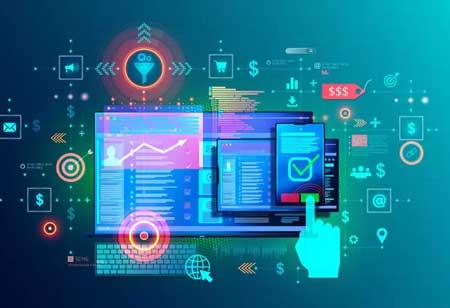THANK YOU FOR SUBSCRIBING
Be first to read the latest tech news, Industry Leader's Insights, and CIO interviews of medium and large enterprises exclusively from Education Technology Insights
Understanding AI's Impact on Educational Technology
AI-powered platforms can adapt to each student’s learning styles, paces, and preferences.

By
Education Technology Insights | Monday, April 21, 2025
Stay ahead of the industry with exclusive feature stories on the top companies, expert insights and the latest news delivered straight to your inbox. Subscribe today.
AI-powered platforms can adapt to each student’s learning styles, paces, and preferences.
FREMONT, CA: Artificial intelligence (AI) is rapidly revolutionizing the educational technology (EdTech) industry, causing a shift in how education is delivered, accessed, and tailored. Its connection with educational tools and platforms allows for more efficient, effective, and personalized learning experiences. The revolution changes the academic landscape, creates new opportunities, and addresses long-standing educational difficulties. The most major way AI affects EdTech is by personalizing learning experiences.
Traditional educational systems often employ a one-size-fits-all approach, leaving many students disengaged or struggling to keep up. AI is powering the development of intelligent tutoring systems, which provide students with one-on-one instruction that mimics the personalized attention of a human tutor. The systems use natural language processing and machine learning algorithms to interact with students, answer questions, and guide them through complex problems. The customized approach enhances student engagement and improves learning outcomes by ensuring students receive the proper support at the right time.
The AI system can provide targeted exercises, additional resources, or alternative explanations to help them grasp the material. It can be particularly beneficial in mathematics and science, where students often require step-by-step guidance to understand complex concepts. The AI-driven tutoring systems can analyze a student’s responses in real time, offering hints, explanations, or additional practice as needed. The immediate feedback helps students learn more effectively and can significantly reduce the time necessary to master new material. AI-powered tools can provide essential support that makes learning more accessible.
AI-powered tools can handle these tasks efficiently, reducing the workload and allowing educators to spend more time on activities directly impacting student learning. AI-driven grading systems can assess essays and short-answer questions, providing feedback and assigning grades in a fraction of the time it would take a human teacher. While these systems are still evolving and may not fully replicate human judgment in complex assessments, they are increasingly capable of accurately handling basic grading tasks. Speech recognition technology can assist students with mobility impairments by allowing them to interact with educational content using their voices.
AI-driven translation tools can help non-native speakers by providing real-time translation and language support. Integrating AI into the educational technology industry is ushering in a new era of learning that is more personalized, efficient, and accessible. From intelligent tutoring systems and automated administrative tasks to enhanced accessibility and data-driven insights, AI fundamentally transforms how education is delivered and experienced. Its impact on EdTech will only deepen, offering new possibilities for improving education and ensuring all students succeed in a rapidly changing world.







